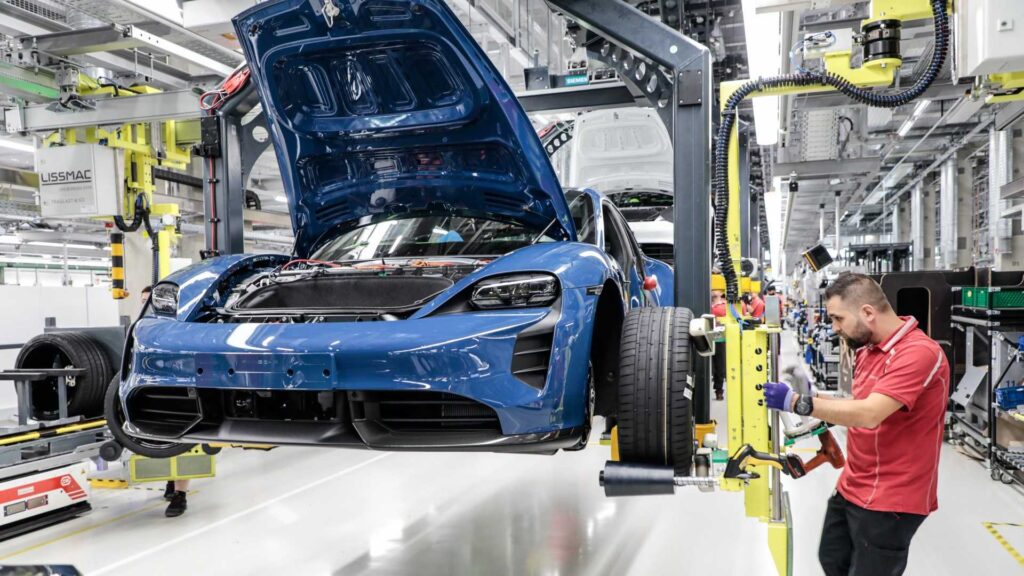Porsche, a renowned luxury car manufacturer, is making tough decisions in response to challenges in the electric vehicle market. The company has announced plans to cut 1,900 jobs in Germany, citing concerns over the slow adoption of electric vehicles in Europe and a deceleration in growth in China. These job cuts will impact workers at Porsche’s main plant in Zuffenhausen and its research and development site in Weissach.
The layoffs come as Porsche faces difficulties with the delayed ramp-up of electromobility and challenging economic conditions. The company has already implemented two rounds of layoffs affecting 2,000 employees, with the latest round affecting 1,900 more workers. The Porsche Taycan, an electric four-door sports sedan, is manufactured at the Zuffenhausen plant, while the Macan EV crossover is produced in Leipzig.
Despite the challenges, Porsche remains in a relatively strong position. The company plans to reduce the workforce at the affected sites by 15% by 2029. Last year, Porsche began cutting jobs by not renewing the contracts of 1,500 fixed-term employees, with an additional 500 contracts set to expire. However, these measures were deemed insufficient, leading to the latest round of layoffs.
Porsche has stated that there will be no forced layoffs, and the reduction in headcount will be achieved through voluntary measures such as early retirement and severance packages. The company will also adopt a cautious approach to new hires. Last year, Porsche delivered 310,718 vehicles globally, experiencing a 3% decline compared to the previous year. In China, Porsche saw a significant drop of 28% in sales. The company delivered 20,836 Taycan EVs in 2023, a 49% decrease from the previous year.
In response to the challenges in the electric vehicle market, Porsche has announced plans to focus more on combustion and hybrid powertrains. This shift in strategy could impact profit margins, which are expected to fall between 10% to 12%. Porsche is investing $831 million this year in product expansion and development related to combustion and hybrid powertrains.
Reports have surfaced about Porsche facing challenges in the development of its next-generation all-electric 718 Boxster and delays in the battery-powered Cayenne SUV. Additionally, there are speculations that the Macan, initially planned to be sold only as an EV, may also have a combustion-powered version in the future.
Overall, Porsche is navigating through a challenging period in the electric vehicle market, making strategic adjustments to ensure its long-term success. The company’s commitment to innovation and sustainability remains strong despite the current setbacks.

